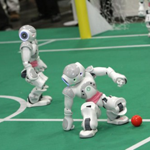
Wikipedia editors recently voted against classifying NFTs as art, but they shelved the issue for another vote at a later date. The question: is an NFT "art" or a "token representing the art"? You may think this is a distinction without a difference, but I assure you it is not. Continue Reading →



